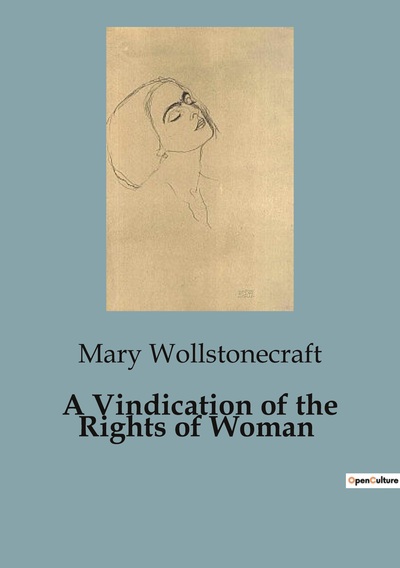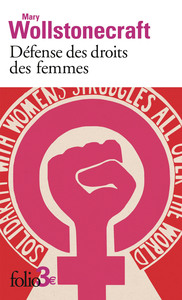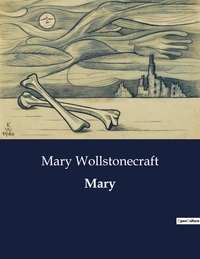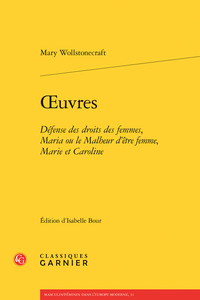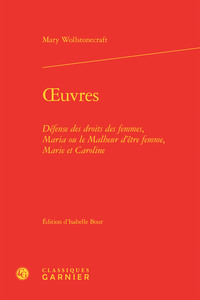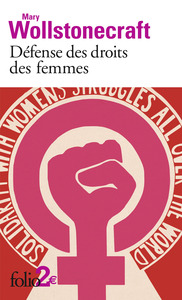Nous utilisons des cookies pour améliorer votre expérience. Pour nous conformer à la nouvelle directive sur la vie privée, nous devons demander votre consentement à l’utilisation de ces cookies. En savoir plus.
A Vindication of the Rights of Woman
EAN : 9791041820306
Édition papier
EAN : 9791041820306
Paru le : 6 oct. 2023
14,00 €
13,27 €
Disponible
Pour connaître votre prix et commander, identifiez-vous
Notre engagement qualité
-
 Livraison gratuite
Livraison gratuite
en France sans minimum
de commande -
 Manquants maintenus
Manquants maintenus
en commande
automatiquement -
 Un interlocuteur
Un interlocuteur
unique pour toutes
vos commandes -
 Toutes les licences
Toutes les licences
numériques du marché
au tarif éditeur -
 Assistance téléphonique
Assistance téléphonique
personalisée sur le
numérique -
 Service client
Service client
Du Lundi au vendredi
de 9h à 18h
- EAN13 : 9791041820306
- Réf. éditeur : 310301
- Date Parution : 6 oct. 2023
- Disponibilite : Disponible
- Barème de remise : NS
- Nombre de pages : 170
- Format : H:210 mm L:148 mm E:10 mm
- Poids : 229gr
- Résumé : "A Vindication of the Rights of Woman" is a seminal work of feminist literature written by Mary Wollstonecraft and published in 1792. It is considered one of the earliest and most influential texts in the feminist movement and addresses the unequal treatment and education of women in society. Mary Wollstonecraft's "A Vindication of the Rights of Woman" continues to be studied and celebrated for its groundbreaking ideas and its role in advancing the cause of gender equality. It remains a powerful and thought-provoking work in the history of feminist literature and philosophy.
- Biographie : Wollstonecraft was born on 27 April 1759 in Spitalfields, London. She was the second of the seven children of Elizabeth Dixon and Edward John Wollstonecraft. Although her family had a comfortable income when she was a child, her father gradually squandered it on speculative projects. Consequently, the family became financially unstable and they were frequently forced to move during Wollstonecraft's youth. The family's financial situation eventually became so dire that Wollstonecraft's father compelled her to turn over money that she would have inherited at her maturity. Moreover, he was apparently a violent man who would beat his wife in drunken rages. As a teenager, Wollstonecraft used to lie outside the door of her mother's bedroom to protect her. Wollstonecraft played a similar maternal role for her sisters, Everina and Eliza, throughout her life. In a defining moment in 1784, she persuaded Eliza, who was suffering from what was probably postpartum depression, to leave her husband and infant; Wollstonecraft made all of the arrangements for Eliza to flee, demonstrating her willingness to challenge social norms. The human costs, however, were severe: her sister suffered social condemnation and, because she could not remarry, was doomed to a life of poverty and hard work.

